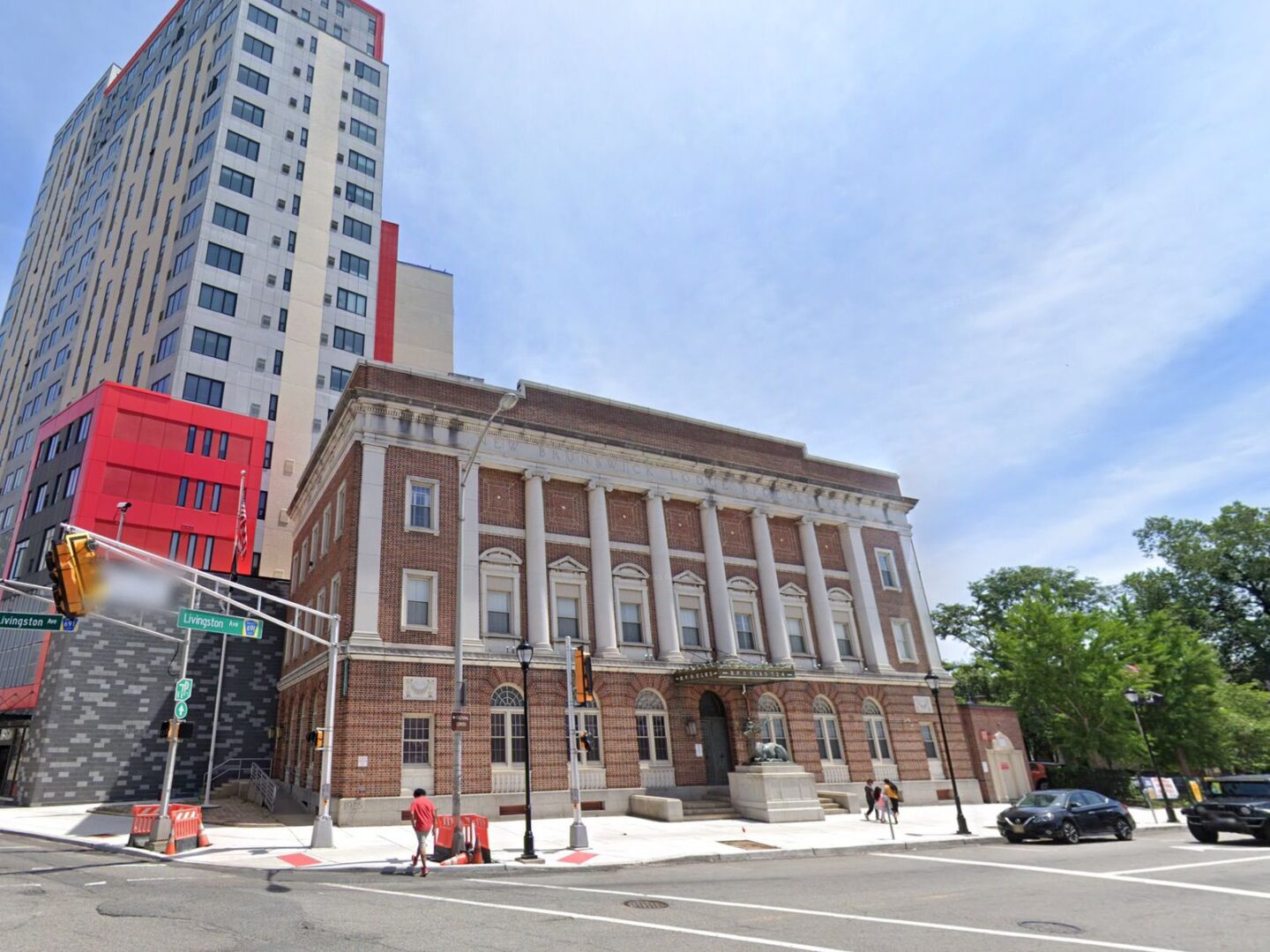
It was a dramatic scene at the New Brunswick City Hall where members of the Elks Lodge No. 324, some wearing the organization’s black-and-yellow jacket, celebrated the planning board’s unanimous approval of a new 23-story glass tower. Within it, a new home would be built for the 128-year-old civic club, something they desperately needed.
But not everyone was thrilled with the news. In order for it to be built, the current historic lodge, built in 1926, must be demolished. Elizabeth Ciccone, a preservationist, stormed out, muttering words of frustration, realizing her effort to save this landmark — or preserve the facade at the very least — had come to an end.
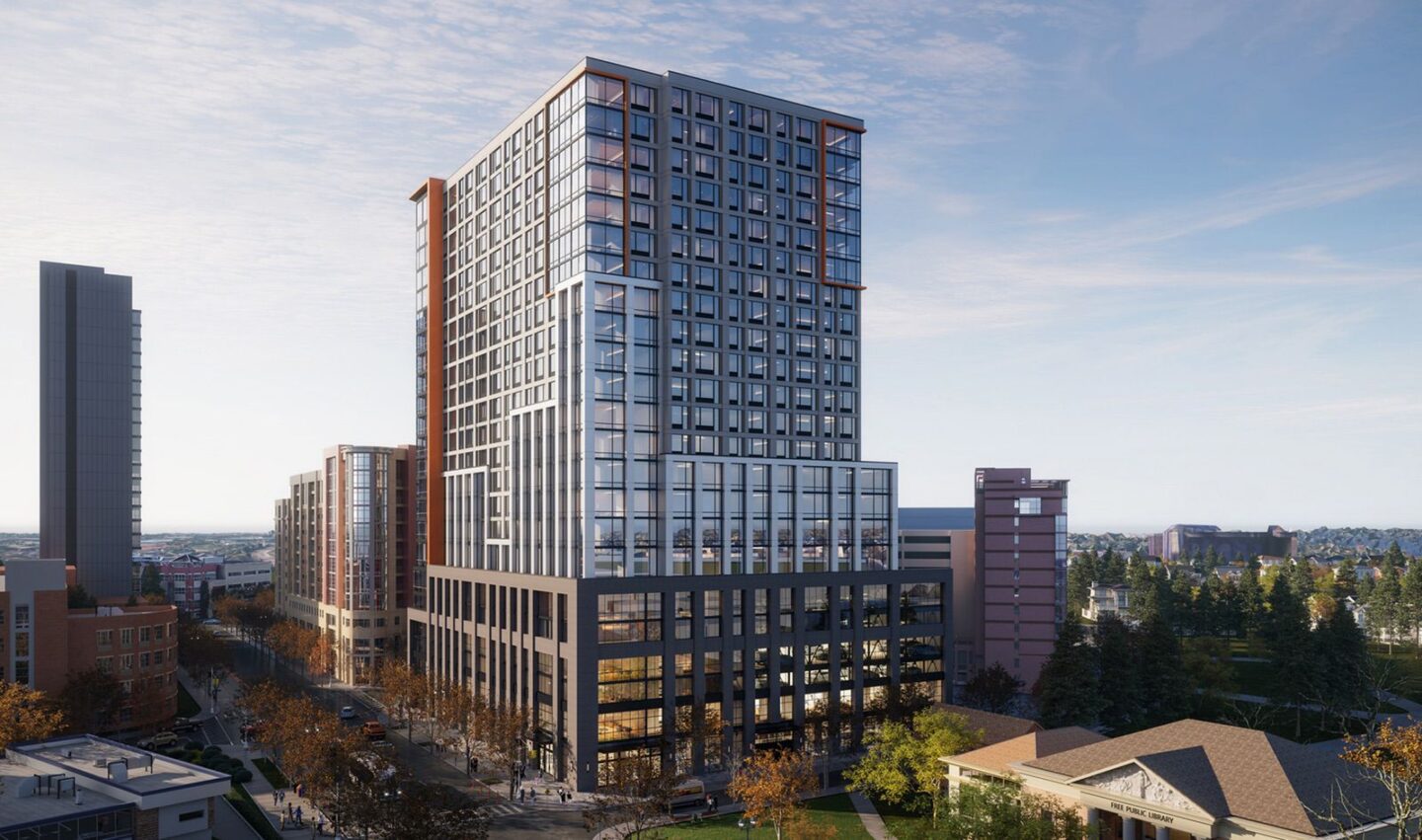
She did all she humanly could, getting it named to Preservation New Jersey’s Most Endangered Places list and coming close to getting it listed to the National Register. Perhaps what was hardest to come to grips with was that she might have succeeded in saving it, if not for one setback — none of the Elks present at the meeting supported her.
“The Elks said, ‘We hear you, but we don’t really care’ — and that’s ultimately the bottom line,” said Ciccone, who is the treasurer of the New Brunswick Historical Society. “It’s their building and they can tear it down if they want, they can sell it to the highest bidder — they’re allowed to do that.”
Robert Cartica, planning board vice chair, asked the Elks one last time for clarification on their stance at last month’s board meeting. “Just to be clear, the Elks are not supportive of including the facade as part of this project, is that correct?”
One Elks member after another stood up and detailed the lodge’s financial situation: the expense of maintaining the historic building on Livingston Street, the runaway repairs, and their shoestring budget that they’d rather spend on charity efforts.
However, one statement stood out from the rest, because it is troubling from a historic preservation point of view. Responding to Cartica’s inquiry into whether they wanted to save the facade, an Elks trustee said: “Our current facade doesn’t represent who we are,” he said. “People walking by are intimidated by the Elks — and that is not who we are.”
When architect Alexander Merchant designed the brick and limestone Neoclassical building at 40 Livingston Avenue in the 1920s, surely he never expected it would intimidate people a century later. Merchant studied under famed architects Carrère and Hastings, who designed masterpieces like the New York Public Library.
Neoclassical architecture is easily misunderstood. It is associated with Gilded Age industrialists who commissioned architects like Merchant to build over-the-top mansions in the Classical style with the aim of impressing their contemporaries. But underlying their designs was mathematical precision, a fundamental belief in an orderly universe, and humanism. It was an age of philanthropy and noblesse oblige that saw the construction of Andrew Carnegie’s libraries in the belief that charity and public education could uplift anyone from their station in life. Aren’t these the values the Elks stand behind?
The New Brunswick Lodge is only the latest Elks Lodge to bite the dust in the past decade. Others have been lost in Catskills, Colonie, Long Island City, Newark, North Wilkesboro, Greenville, Southern Pine, Albuquerque, Juneau, Allentown, New Haven, East Portland, and sadly the list goes on. These lodges represent so much more to communities than just a place where its members meet. The one in Juneau was where the first Legislature of Alaska convened in 1913. These buildings also double as event spaces where local residents can celebrate personal milestones. Ciccone, the preservationist, had her wedding at the lodge in New Brunswick.
The loss of these landmarks are an epidemic in architecture that no one seems to be talking about. If what happened to the New Brunswick Lodge is any indication, it seems the viral spread of demolitions might be contained if the Elks were more vocal. That is not to say the organization is to blame. Founded in 1868, the organization has seen membership plummet nationwide and, as Jersey Digs has said before, historic preservation is not for the frugal.
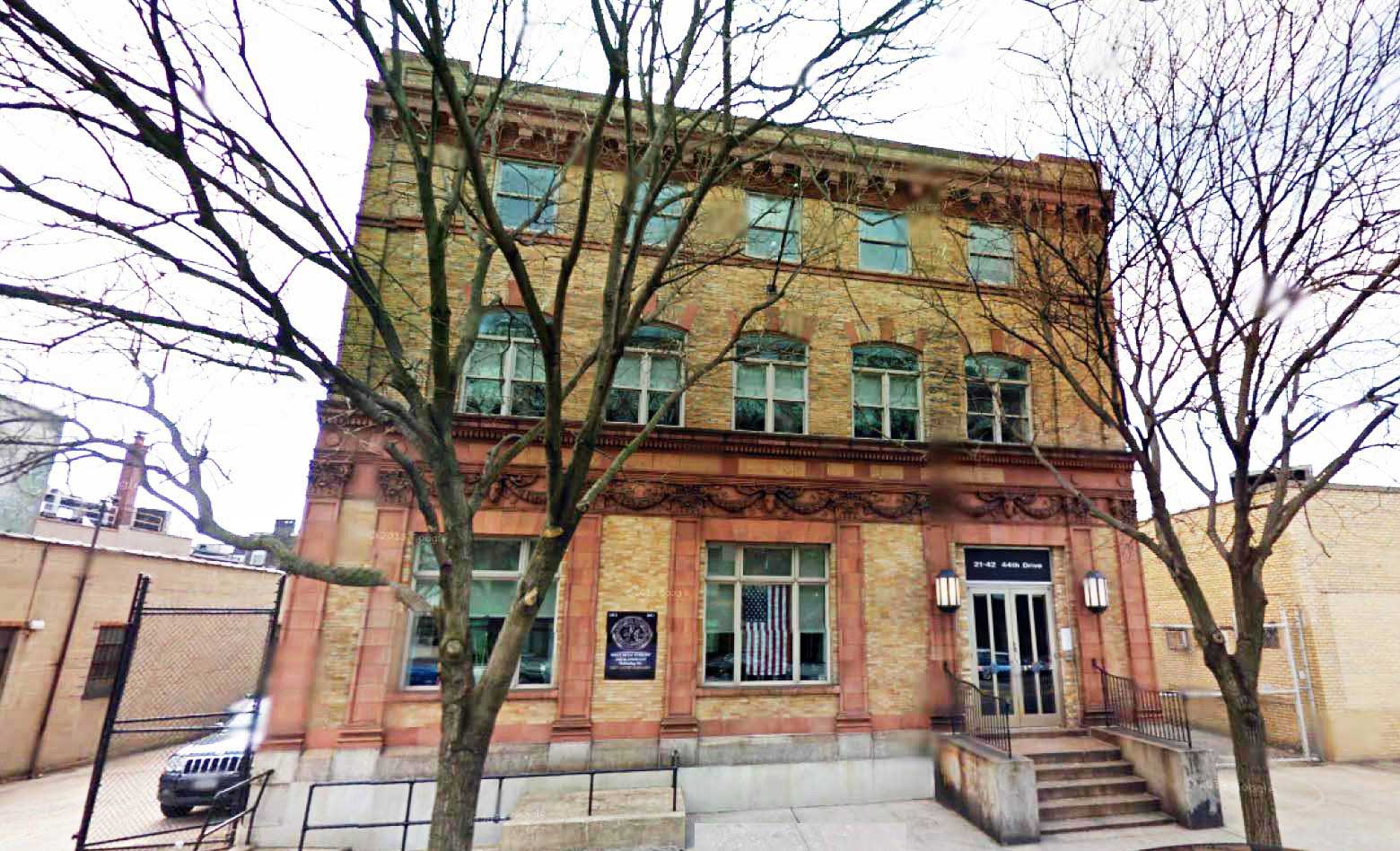
Local historical societies just can’t compete with deep-pocketed and sometimes unscrupulous real estate developers, according to Bob Singleton, executive director of the Greater Astoria Historical Society. Singleton’s group spent the better of two years trying to save a lodge in Long Island City, rushing to try to designate it to the state register. So determined were the developers – Alwest Equities and Planet Partners – to tear it down that they ordered workers to deface the facade before it could get landmarked.
“The Elks did not take up a jackhammer to destroy the building,” said Bob Singleton, executive director of the Greater Astoria Historical Society. “The broader community has far more resources. It is somewhere within that term that we could lay the blame.”
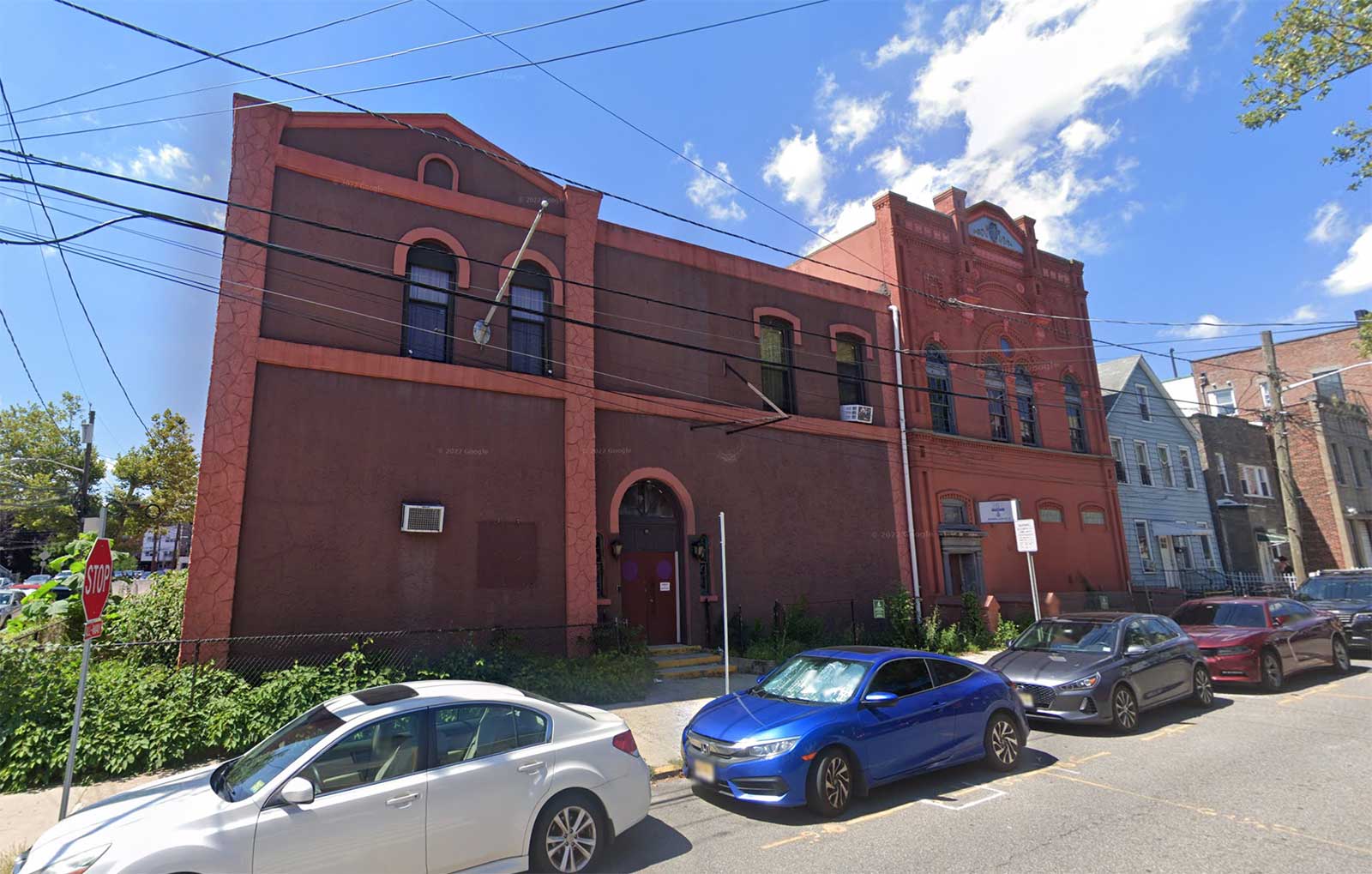
One excuse developers often peddle to justify demolishing Elks Lodges is that it is cheaper to pulverize them and build a new structure in its place than to restore them. But Joseph Damanti, managing partner at M2M Development, said that was not the case with the Elks Lodge in Jersey City, which he plans to repurpose into a residential building.
“It’s a hefty building with old stone walls,” Damanti told Jersey Digs. “I don’t think there would be any cost savings to demolish it and build anew.”
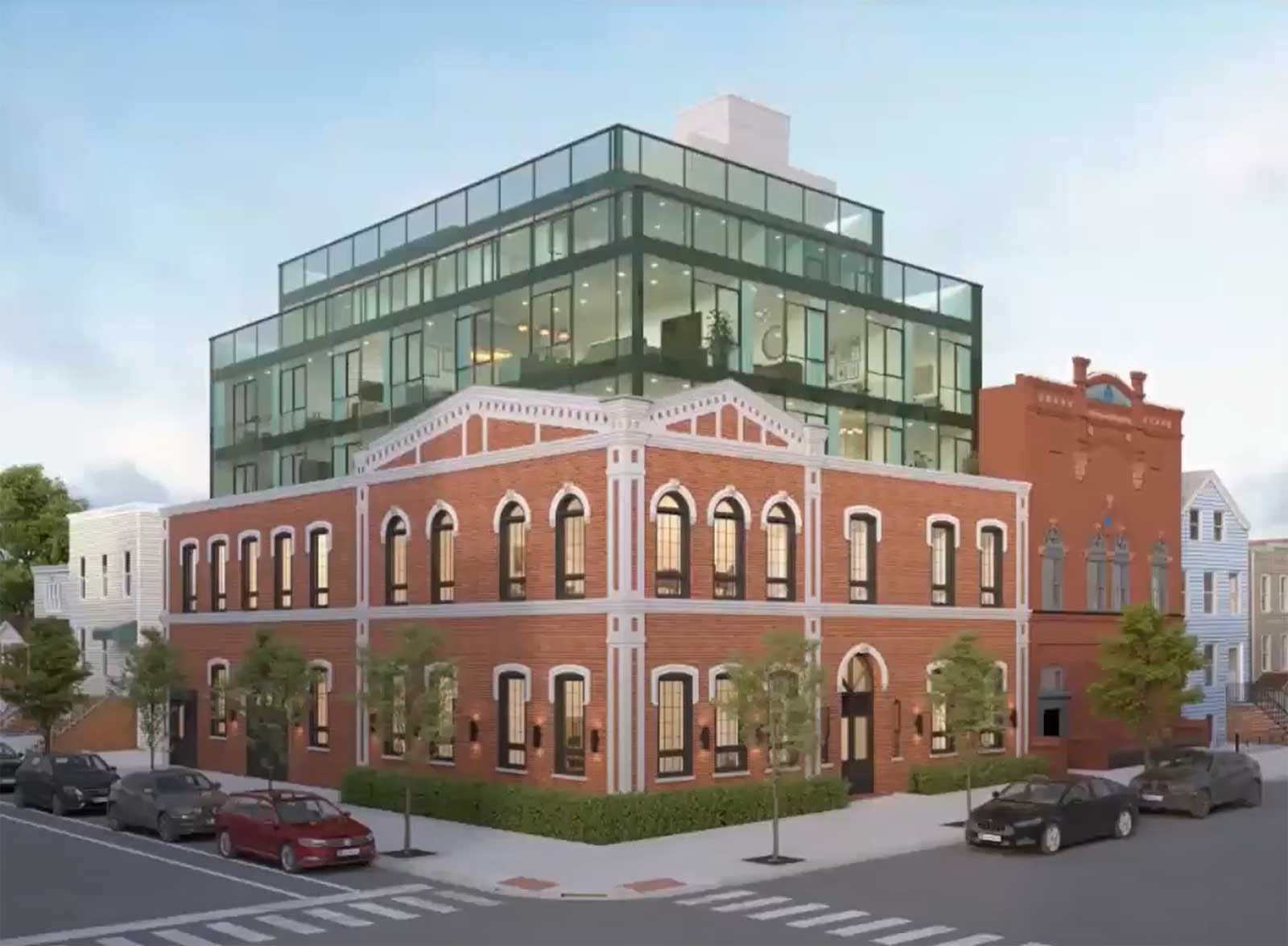
His plan is to restore the facade of the 19th-century building at 83 Hutton Street while updating the interiors with smart-home features, top-of-the-line Dacor appliances, and EV chargers, proving that historic preservation can be married to modern tastes.
“We live in this neighborhood,” said Damanti, who lives in the Heights where the lodge is located. “We care what is built here.”
However, Damanti’s decision did not come at the insistence of the Elks. It was the local Zoning Board that struck a deal with his firm to grant them a setback variance if he agreed to spare the facade, proving that local land use boards have the power to promote preservation if they choose to wield it.
Not all the Elks are so willing to sell their lodges to the highest bidder. Harold Hughes, the exalted ruler of Lodge No. 48 could have easily sold his building in Alexandria, VA for more than $1 million, he said. The latest offer came only six months ago.
But Hughes knows he’ll rue the day a For Sale sign is put on the front lawn of this building at 227 N. Henry Street, which housed the state’s first chapter of the Black Elks, or the Improved Benevolent Protective Order of Elks of the World, founded in 1898. The IBPOEW Elks, to older members of his community, represented a place where Black professionals could support each other during segregation. In the surrounding neighborhood – the Parker-Gray Historic District, a historically Black community – local landmarks are vanishing as new families come and old families go. The same holds true for the membership at his lodge. In its heyday, the lodge boasted 400 members. It now teeters around 30 members.
“When membership drops, funds drop,” Hughes said. “When funds drop, neglect starts.”
For now, Hughes is holding the line. His biggest worry is not developers knocking on his door, but to whom he can pass the torch, finding a younger generation no longer concerned with civic-minded pursuits, he said. Perhaps that is where some of the blame lies as well.
“The youth today,” Hughes lamented. “They’re not into being a part of anything.”